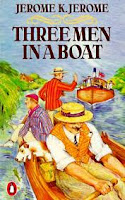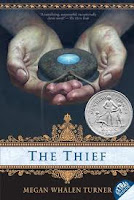When my son was a year old, he was obsessed with cows. Perhaps his cow-bsession originated from too many repeats of “Old MacDonald Had a Farm” or maybe from visits to the local petting zoo. Either way, as a loving parent and a literary nut, I immediately acquired a multitude of books about cows which greatly enhanced my knowledge of the types of cows in the world (there’s a cow that has a white belt across her black belly) and my understanding of the various parts of a cow’s digestive system (there are too many). We had books about cows that type and cows that come home, and even one fabulous and funny book called The Cows Are Going to Paris, written by David Kirby.
| The cow painting hanging in Uri’s room |
Uri is still fond of cows. He prefers not to eat beef because he feels it is wrong to kill such a beautiful creature. My boyfriend Dar loves cows too and has given Uri a gorgeous painting of some Holstein cows meandering in a meadow to hang in his room. When I drive out through the hills near our house, I watch the cows roaming, and I send out a wish that they are happy cows, raised for their milk. I guess you could say that we love cows in my family.
To me a cow is a symbol of a return to nature and a simpler life. It throws me back to childhood visits to the Kibbutz (the Israeli communal farm) or the Moshav (the cooperative farm), the smell of cows hanging in the air, their melodic moos carrying in the breeze. Cows symbolize, for me, an assurance against starvation, which I draw not from life but from literature. I remember Hector Malot’s touching and adventurous Nobody’s Boy, and the thin cow which alone protected Remy and his foster mother from poverty. I knew: as long as there’s a cow, there will be milk and butter.
So when Patricia MacLachlan, author of the wonderful Sarah Plain and Tall, said (and I think it may have been a quote from her books) at the SCBWI conference, “I can’t write anything better than a cow,” and again after that, “a poem as beautiful as a cow,” I felt a deep connection to that sentiment. What is there, in our world, more beautiful than a cow? She is a symbol of mother earth, nourishing, generously sharing her milk with us. In India the cow is a sacred animal, and in Feng Shui it is a symbol for prosperity and good luck.
But if a cow embodies the mother: patient, calm, accepting, what does it have in common with a conflict-filled, dramatic, fast paced book? For me, at least, Ms. MacLachlan’s analogy evoked a feeling rather than a comparison: that a writer has created something as pure, innocent, and perfect in its own way, as real, as true to its own nature, as a cow.













